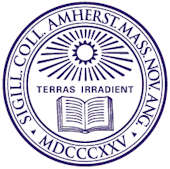Kate Sims is an Associate Professor of Economics at Amherst College and an affiliate of the Environmental Studies Department. She uses microeconomic theory and econometric tools to study how land conservation policies simultaneously affect environmental and economic outcomes. She has studied policies such as protected areas, payments for ecosystem services, community-based forest management, and local zoning in Thailand, Mexico, Nepal, and New England. She holds a Ph.D. in Political Economy and Government from Harvard University and a B.A. in Ecology and Evolutionary Biology from Princeton University. She has been a fellow of Harvard’s Environmental Economics and Sustainability Science Programs and her work has been supported by the National Science Foundation, the International Initiative for Impact Evaluation, the World Bank’s Impact Evaluation to Development Impact program, and the Andrew Carnegie Fellows Program. Her work on conservation and development has been published in both economics journals and high-impact multidisciplinary journals including the American Economic Journal: Economic Policy, The Journal of Environmental Economics and Management, Proceedings of the National Academy of Sciences, The Review of Economics and Statistics, and Conservation Biology. She is passionate about the importance of dialogue between economists and ecologists and hopes to contribute to conservation policy that protects ecosystems while allowing local economies to flourish. She enjoys integrating her research into teaching, including courses in econometrics, environmental and natural resource economics, and introductory economics with environmental applications.
Experience
-
–presentAssociate Professor of Economics, Amherst College
- Amherst, Massachusetts
- Website
- Article Feed
- ORCID
- Joined


